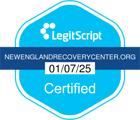Generational substance use is a deeply rooted issue influenced by a combination of genetics, environment, and learned behavior. Families affected by substance misuse often face complex challenges, but with the right strategies and support, preventing the cycle is possible.
The Roots of Generational Substance Use
Substance use has a strong genetic component. Children of individuals with substance use disorders are significantly more likely to develop similar issues. However, genetics are not destiny. Even those with the highest genetic predispositions can avoid developing substance use disorders by understanding their risks and making intentional choices.
Environmental and learned behaviors also play a crucial role. In some families and communities, substance misuse is normalized as part of daily life, social gatherings, or even family bonding. Unfortunately, this normalization can increase the likelihood of misuse.
On the other hand, individuals who witness the negative consequences of addiction within their families often develop strong convictions to avoid substances, highlighting how environmental influences can serve as either risk factors or protective factors in shaping outcomes.
Challenges to Preventing the Generational Substance Use Cycle
Overcoming generational substance use requires addressing significant psychological, social, and systemic barriers. Many individuals from substance-affected families experience adverse childhood experiences (ACEs) that increase their vulnerability to substance misuse. These might include trauma, instability, or separation from loved ones due to substance use or recovery efforts.
Systemic challenges, such as limited access to resources and socioeconomic barriers, can make recovery even more difficult. Individuals in under-resourced communities often lack positive outlets, which hinders their ability to envision alternatives to substance misuse.
Opportunities matter — when people have access to healthier options and supportive environments, they are more likely to choose them.
Strategies for Preventing Generational Substance Use
Open Communication and Education:
Transparent, honest conversations about substance use and its risks are essential. Addressing the topic early can help reduce stigma and build understanding. As children grow, these conversations should evolve to explore their experiences and choices, focusing on education rather than shame. Open dialogue within families fosters awareness and empowers individuals to make healthier decisions.
Creating Supportive Environments:
Connection is a powerful protective factor against substance use. Families can model healthier behaviors, such as choosing substance-free activities at gatherings, to demonstrate alternative ways of having fun and socializing.
Communities also play a role by offering accessible recreational activities, arts programs, and safe spaces that promote engagement and positive relationships.
Family Support and Education:
Substance use is a family disease — it affects everyone, not just the individual struggling with substance misuse. Family support groups and educational resources can help loved ones better understand the disease and navigate their roles in the recovery process. These resources provide critical support for managing the stress and challenges that substance use places on families.
Addressing Systemic Barriers:
Historically, approaches to substance use treatment have often involved separating individuals from their families, particularly children. While safety remains a priority, keeping families connected during recovery is essential for fostering positive attachment and reducing isolation. A shift toward maintaining these connections within a supportive framework is critical for long-term healing and recovery.
Fostering Hope
Preventing the cycle of substance use requires focusing on strengths and successes. Shame-based approaches, often reinforced by societal attitudes, only deepen hopelessness and hinder progress. Instead, we encourage families to emphasize positive achievements and moments of success. Reflecting on these wins, no matter how small, can help individuals recognize their capacity for change and foster a sense of hope.
Recovery is not about perfection, but about progress. Genetics, environment, and past behaviors may shape risks, but they do not define outcomes. With the right tools, support, and opportunities, individuals and families can rewrite their stories and create a new legacy free from the shadow of substance use.
A Brighter Future
Overcoming generational substance use begins with education, open communication, and supportive environments. By addressing stigma, fostering connection, and ensuring access to resources, families and communities can help individuals overcome the challenges of substance misuse. Together, we can build a future where substance use no longer defines the lives of those it touches.
If you or a loved one are struggling with addiction or co-occurring disorders, call the New England Recovery Center today at 1-877-MyRehab.











